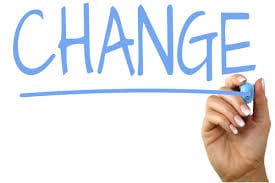The World Economic Forum’s 2019 Future of Jobs report predicts that by 2022 there will be an increased demand for many job roles. Many of the roles identified are ideal career paths for those with communications and technical writing backgrounds.
The roles listed include:
- Social Media Specialists
- Customer Service Workers
- Sales and Marketing Professionals
- Training and Development
- People and Culture
- Organizational Development Specialists
- Innovation Managers
The research for the report focuses on the changing workforce in Industry 4.0 or the fourth industrial revolution. As a result, many of the roles in the report are based on and enhanced by the use of technology. The report predicts that the roles featuring ‘distinctively human skills’ will be in higher demand as technology, business, and economics changes in the fourth industrial revolution.
These human skills include:
- Creativity
- Originality and initiative
- Critical thinking
- Persuasion and negotiation
- Attention to detail
- Resilience
- Flexibility and complex problem solving
- Emotional intelligence
- Leadership
- Service orientation
These skills are those necessary for successful collaboration in organizations. People working together or collaborating is one of the biggest factors contributing to the success of a business. These human skills increase the ability to collaborate with each other to benefit the organization. It is the technological skills and human skills working together that will fuel a new idea, campaign, product or business.
Collaboration
Miriam-Webster defines collaborate as, to work jointly with others or together especially in an intellectual endeavor. The definition is accurate but does not convey the process of collaboration nor what makes a successful collaboration. It is more than team work, cooperation, and coordination. Collaboration is a human activity where problem-solving comes into play.
Dave Mattson of Sandler Training offers these 6 benefits of collaboration in the workplace:
- Fosters creativity and learning
- Blends complementary strengths
- Builds trust
- Teaches conflict resolution skills
- Promotes a wider sense of ownership
- Encourages healthy risk-taking.
Effective Collaboration
The measure of effective collaboration is that the result of the group’s efforts is greater than the results the individual people could achieve on their own. Characteristically, teams who have the human skills for collaboration outperform teams lacking these skills.
An environment that fosters collaboration must be supported by organization and nurtured as an attribute of the culture. Collaboration then comes down to the team, the process, and the purpose. We have all heard the phrase, ‘there is no I in team’. Collaboration is not an activity for individuals, it happens in teams. The team members then work together to complete a shared process. Lastly, for true collaboration to happen the people must have a shared goal.
The Future
In this fourth industrial revolution, Artificial Intelligence (AI) and the Internet of Things (IoT) are the developing innovations, but the human skills may be the way companies offer a uniqueness to the equation and set themselves apart from their competitors. As these qualities become more desirable to companies and Human Resources begin to identify candidates who possess these qualities, we as communicators and technical writers must strive to embody these qualities.
Resources
https://www.weforum.org/reports/the-future-of-jobs-report-2018
https://seapointcenter.com/what-is-collaboration/
https://www.sandler.com/blog/6-benefits-of-teamwork-in-the-workplace
https://www.risebeyond.org/6-skills-needed-for-effective-collaboration/
https://www.risebeyond.org/6-skills-needed-for-effective-collaboration/
https://www.thoughtfarmer.com/blog/what-collaboration-really-means/
https://www.tlnt.com/the-power-of-people-skills-in-the-age-of-ai/


